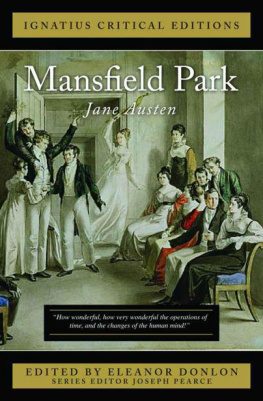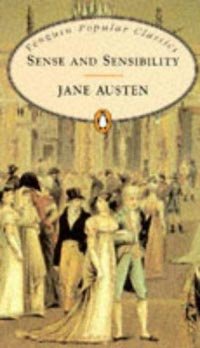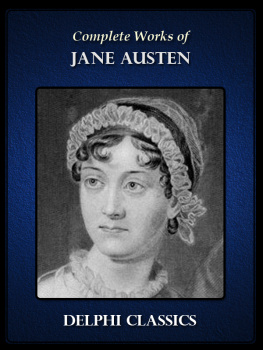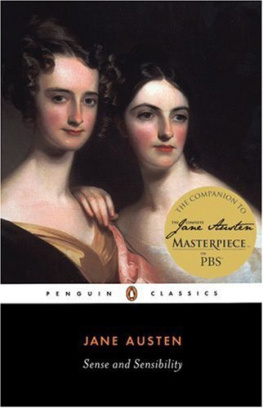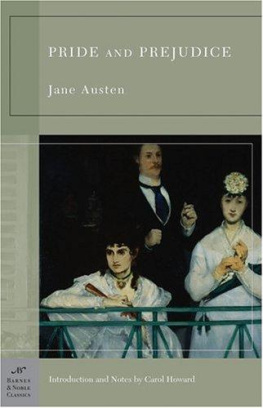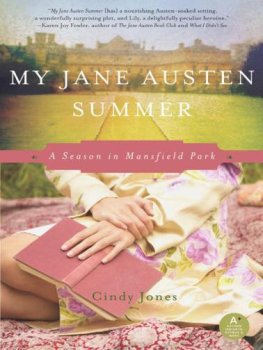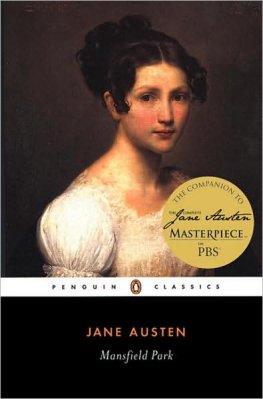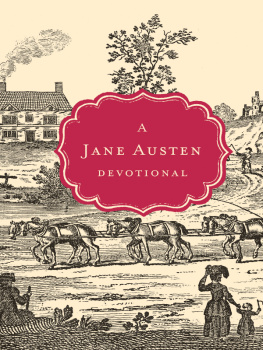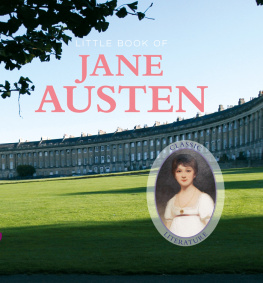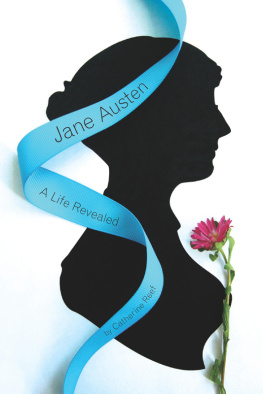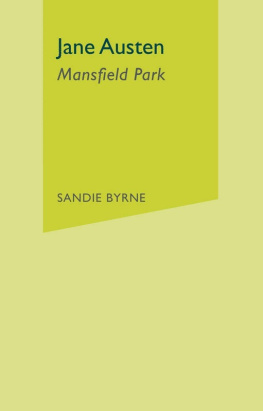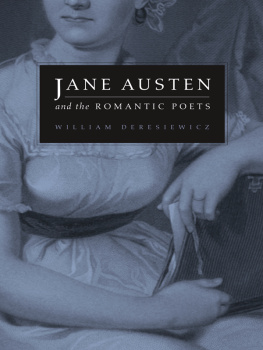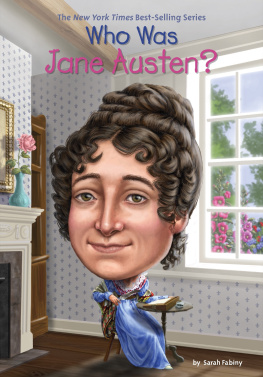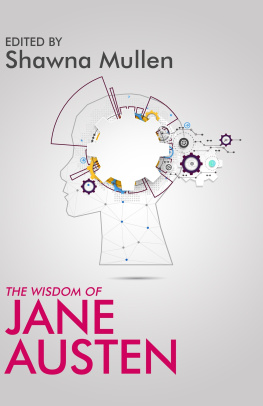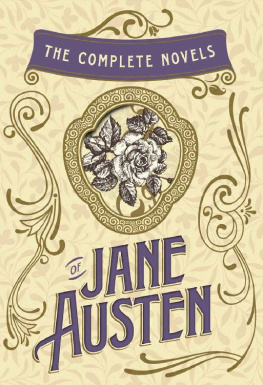Jane Austen - Mansfield Park: With an Introduction, Contemporary Opinions, and Contemporary Criticism
Here you can read online Jane Austen - Mansfield Park: With an Introduction, Contemporary Opinions, and Contemporary Criticism full text of the book (entire story) in english for free. Download pdf and epub, get meaning, cover and reviews about this ebook. year: 0, genre: Non-fiction. Description of the work, (preface) as well as reviews are available. Best literature library LitArk.com created for fans of good reading and offers a wide selection of genres:
Romance novel
Science fiction
Adventure
Detective
Science
History
Home and family
Prose
Art
Politics
Computer
Non-fiction
Religion
Business
Children
Humor
Choose a favorite category and find really read worthwhile books. Enjoy immersion in the world of imagination, feel the emotions of the characters or learn something new for yourself, make an fascinating discovery.
- Book:Mansfield Park: With an Introduction, Contemporary Opinions, and Contemporary Criticism
- Author:
- Genre:
- Year:0
- Rating:5 / 5
- Favourites:Add to favourites
- Your mark:
- 100
- 1
- 2
- 3
- 4
- 5
Mansfield Park: With an Introduction, Contemporary Opinions, and Contemporary Criticism: summary, description and annotation
We offer to read an annotation, description, summary or preface (depends on what the author of the book "Mansfield Park: With an Introduction, Contemporary Opinions, and Contemporary Criticism" wrote himself). If you haven't found the necessary information about the book — write in the comments, we will try to find it.
Mansfield Park: With an Introduction, Contemporary Opinions, and Contemporary Criticism — read online for free the complete book (whole text) full work
Below is the text of the book, divided by pages. System saving the place of the last page read, allows you to conveniently read the book "Mansfield Park: With an Introduction, Contemporary Opinions, and Contemporary Criticism" online for free, without having to search again every time where you left off. Put a bookmark, and you can go to the page where you finished reading at any time.
Font size:
Interval:
Bookmark:
MANSFIELD PARK
Jane Austen
With an Introduction,
Contemporary Opinions, and
Contemporary Criticism
Edited by ELEANOR BOURG DONLON
Ignatius Critical Editions Editor
JOSEPH PEARCE
IGNATIUS PRESS SAN FRANCISCO
Cover art:
Leopold Kupelwieser, The Fall , a charade played by the Schubertians
in Atzenbrugg Castle, Lower Austria. Watercolor. 1821.
Wien Museum Karlsplatz, Vienna, Austria
Photo Credit: Erich Lessing / Art Resource, N.Y.
Cover design by John Herreid
2010 Ignatius Press, San Francisco
All rights reserved
ISBN 978-1-58617-418-7
Library of Congress Control Number 2010927112
Printed in the United States of America
Tradition is the extension of Democracy through time; it is the proxy of the dead and the enfranchisement of the unborn.
Tradition may be defined as the extension of the franchise. Tradition means giving votes to the most obscure of all classes, our ancestors. It is the democracy of the dead. Tradition refuses to submit to the small and arrogant oligarchy of those who merely happen to be walking about. All democrats object to men being disqualified by the accident of birth; tradition objects to their being disqualified by the accident of death. Democracy tells us not to neglect a good mans opinion, even if he is our groom; tradition asks us not to neglect a good mans opinion, even if he is our father. I, at any rate, cannot separate the two ideas of democracy and tradition .
G. K. Chesterton
Ignatius Critical EditionsTradition-Oriented Criticism for a new generation
CONTENTS
Katy Carl
Paul J. Contino
Mitchell Kalpakgian
Theresa Kenney
Alasdair MacIntyre
Regis Martin
Jack Trotter
INTRODUCTION
Eleanor Bourg Donlon
She opened her mouth with wisdom and in her tongue is the law of kindness.Proverbs 31:26
The enthusiasm of a womans love is even beyond the biographers, sagely remarks the narrator of Mansfield Park . Where the reader (and his sometime friend and frequent nemesis, the literary critic) may fall on this spectrum of enthusiasm is perhaps more difficult to say. The reader is often a hybrid of converging intereststhe biographical, the historical, the criticalbut the happiest reader will be first and foremost a lover of what he reads.
It is a strange thing in this era of frenzied exposs to admit to a certain reverenceand, born of that, a certain intimidationin approaching a literary work. Such emotions contradict both the egalitarian and the scandal-mongering spirits of mainstream academic research and cinematography, both of which seem to argue that all things are accessible to all people because the consecrated modern peccadilloes, principally solipsism and sexual perversion, can be uncovered in (or projected onto) any era. Such a creed is palpably false; true greatness is born of virtue, and must, as a manifestation of mans potential to taste the glory of God, inspire awe. Moreover, mans virtuous potential far exceeds his capacity for sin and brings clarity of understanding in its wake. To neglect proper reverence, especially as it is directed toward a demonstration of the remarkable virtue of an individual, is to handicap oneself severely as a reader, to destroy preemptively any chance of true enjoyment, and to create a barrier to the possibility of growth that is inherent for the reader in every truly great book. In fact, it is the quality of goodness, of virtue, that should provoke the most admiration in a reader, even to the point of awe.
So it must be for anyone who approaches the life and works of Jane Austen, who is, along with Shakespeare, one of the greatest and most biographically elusive figures in English literary history. In a special way Austen resists any attempts to co-opt her life and her work to a modernist (or postmodernist) secular agendafirst, because of the well-known scarcity of materials (compared, for example, to the output of such prolific authors as Robert Louis Stevenson, whose collected works span lengthy bookcase shelves, or the self-gratulatory diaries of any twentieth-century cultural icon), and second, because wisdom was not merely a vague attribute in her but a virtue realized. In all things, Jane Austen was a lady of faithand both nouns in that construction must be given due emphasis. Perhaps nowhere is this more apparent than in Mansfield Park , her most neglected, abused, and misunderstood novela novel that can be appreciated only when illuminated by the life and beliefs of the author herself. It behooves us, therefore, to seek a better acquaintance with her.
Primary information concerning Jane Austens life is indeed notoriously spare, drawn only from several brief sources: the 1869 Memoir of Jane Austen written by her nephew, James Edward Austen-Leigh; From these meager sources and the brilliance of her writings, we draw the picture of a famous novelist.
The Reverend William George Austen (1731-1805) and his wife, Cassandra (1739-1827), were blessed with eight children. James (1765-1819) became a clergyman; George (1766-1838), born deaf and dumb and subject to severe epileptic fits, lived with a local family from early childhood and has occasionally been forgotten in lists of the Austen children; Edward (1767-1852) was adopted by his fourth cousin, Mr. Thomas Knight, of Godmersham Park in Kent and Chawton House in Hampshire and eventually inherited the estate, in recognition of which he took the surname of Knight; Henry Thomas (1771-1850) became first a banker and then a clergyman; Elizabeth Cassandra (1773-1845), the authors only sister and closest friend, never married; Francis William (Frank) (1774-1865) and Charles John (1779-1852) became sailors and later admirals in the Royal Navy.
Jane Austen was born on December 16, 1775, between her brothers Frank and Charles. During her childhood she lived in Steventon, in the county of Hampshire, where her father served as rector of an Anglican parish. Her early education, as well as that of Cassandras, included a brief time spent in Oxford and Southampton under the tutelage of Mrs. Ann Cawley (during which both girls were afflicted by typhusJane nearly fatally) and a little over a year spent at a boarding school. Their primary education, however, was undertaken at home under the supervision of their father and brothers. Though not affluent or members of the landed gentry, as daughters of a clergyman Jane and Cassandra participated in the life of the upper middle class. At the same time, their fathers charitable ministry would have brought them into close contact with the poor of their community.
A life of usefulness, literature, and religion, noted her brother Henry, was not by any means a life of event. After 1786, when the girls returned home from boarding school, Austen remained primarily within her small country community, inhabiting a world very much like that which she describes in her novels, full of everyday business: the management of the household; letter writing (particularly to her young nieces); music; sewing; religious observances; parish visiting; occasional trips from home (like many of her sex and her social position, she would visit relatives to assist during childbirth and death); and some quiet entertainmentssocial engagements, dancing (of which Austen was purportedly a devotee), and even some private theatricals, mostly comedies. As her juvenilia particularly demonstrates, this home environment did not stifle her wit and imagination; on the contrary, it was precisely in this circle that her genius was cultivated. Her writing originated as a source of amusement to herself and her family.
Like Cassandra, Jane Austen never married. During the brief time that the family lived in Bath (after the Reverend Austens retirement from his ministry in 1800), Austen received her first and only proposal of marriage. At first she accepted Harris Bigg-Witherreportedly an unprepossessing man but a long-standing acquaintancebut withdrew her acceptance on the following morning. This romantic interlude in her life, along with a short-lived flirtation with Thomas Lefroy, later a politician and judge, has provoked a maelstrom of hypotheses from biographers and moviemakers alike. This fixation on the romantic (real or imagined) provides the perfect example of a libertine attitude toward biography: the scarcity of detail or dramatic incident in the life of the author sometimes provokes high fantastical speculation.
Next pageFont size:
Interval:
Bookmark:
Similar books «Mansfield Park: With an Introduction, Contemporary Opinions, and Contemporary Criticism»
Look at similar books to Mansfield Park: With an Introduction, Contemporary Opinions, and Contemporary Criticism. We have selected literature similar in name and meaning in the hope of providing readers with more options to find new, interesting, not yet read works.
Discussion, reviews of the book Mansfield Park: With an Introduction, Contemporary Opinions, and Contemporary Criticism and just readers' own opinions. Leave your comments, write what you think about the work, its meaning or the main characters. Specify what exactly you liked and what you didn't like, and why you think so.

